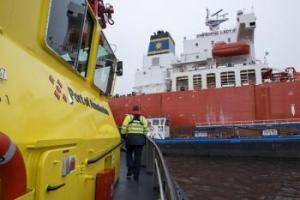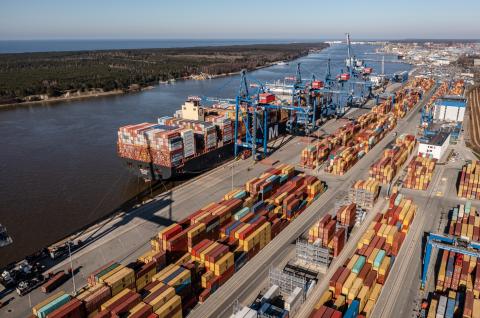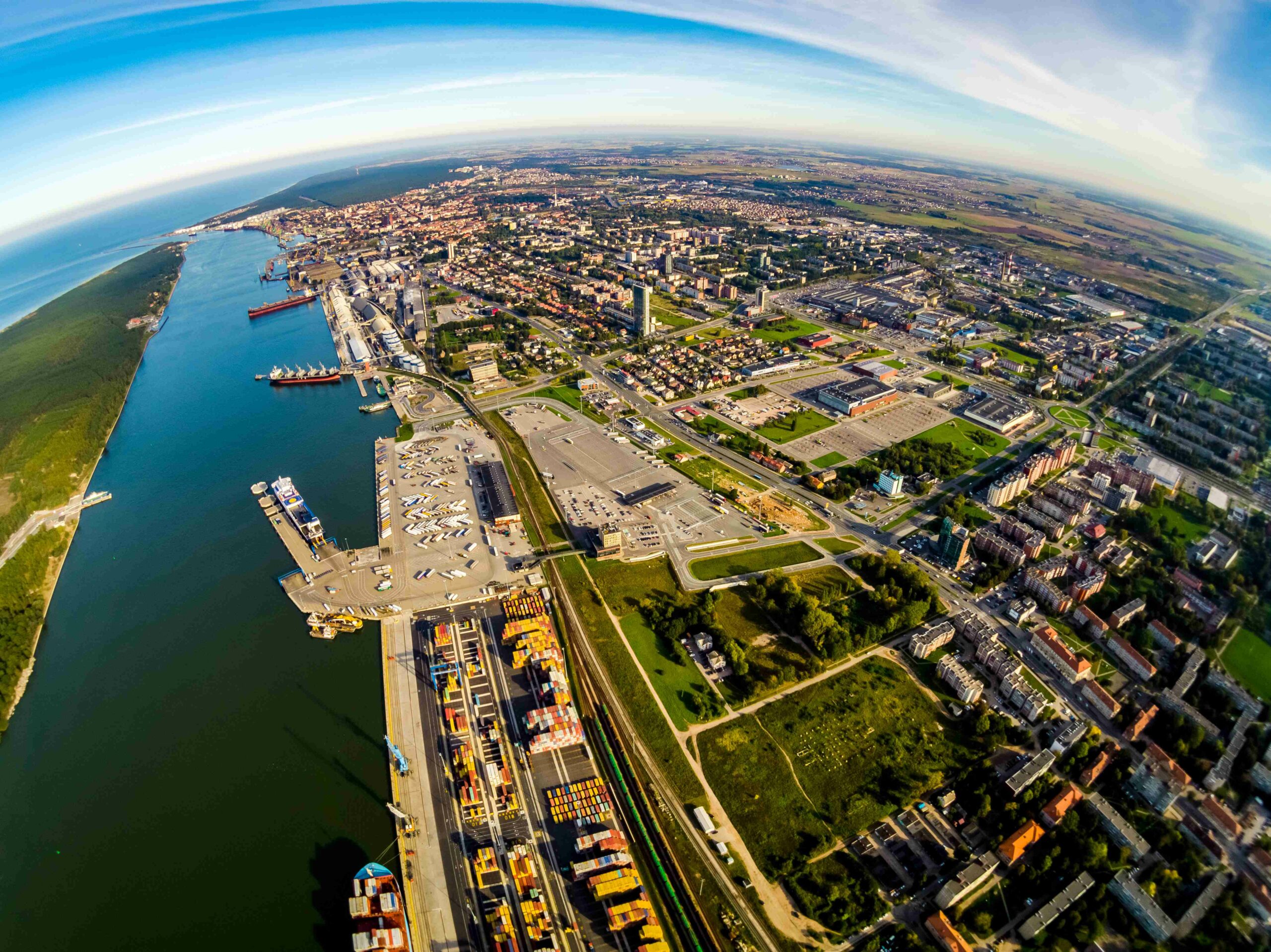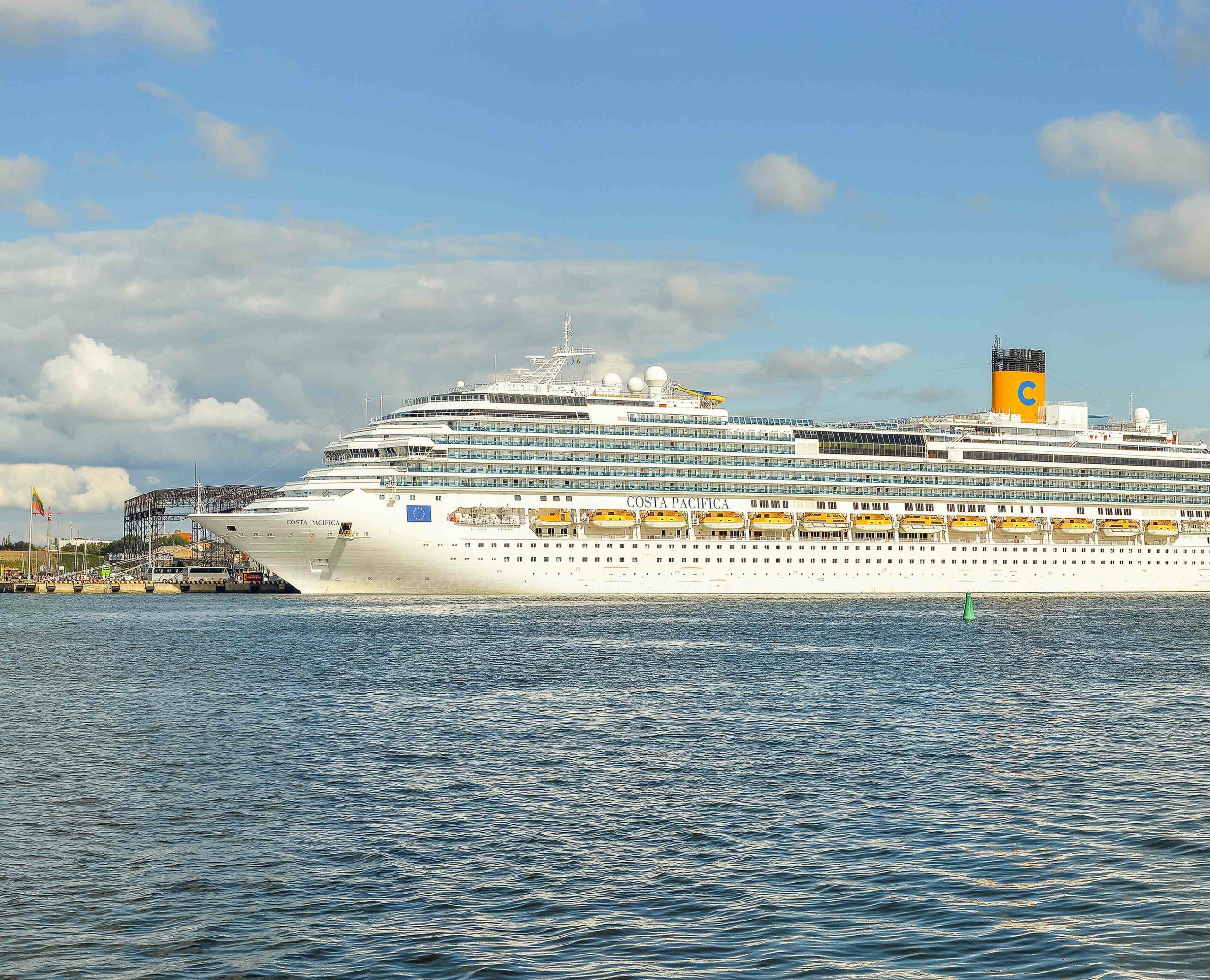Harbour Master
Harbour Masters
Worldwide there are approximately 3,000 merchant ports and the work of the Harbour Master can vary widely from country to country and from port to port even within the same country.


It was reported on 10 October that the Lithuanian port city of Klaipeda aims to maximise its strategic location and vibrant resource base to become a key hub for the nascent offshore wind industry in the Baltic.
In August the Marienborg Declaration was signed and saw heads of government and energy ministers from Lithuania, Estonia, Latvia, Finland, Denmark, Sweden, Poland and Germany commit to closer collaboration in developing new offshore wind volumes in the Baltic Sea, which has estimated wind potential totalling 85-95 GW.

Ensuring energy security
With its strong maritime base, talent pool and innovation sector, Klaipeda’s ambition is to establish itself as a regional hub for an industry that is taking off amid the current energy crisis.
The Lithuanian government earlier announced the location for a 700 MW wind park off the coast that could potentially cover 25% of the country’s entire power demand. The tender process is set to take place in early 2023 with a view to construction completion by 2030.
Various projects elsewhere in the Baltic are currently being evaluated alongside the now in-development Baltic Power project offshore Poland, which with total capacity of 1.2GW is expected to power over 1.5 million homes from 2026.
With wind farms set to play a key role not only in reinforcing energy security and affordability, but also in combating air pollution, huge opportunities exist for the Klaipeda’s established manufacturers and suppliers, as well as its startup ecosystem, to build and entrench local competence.
Bold collaboration required
Hannah Mary Goodlad, Head of Baltic Sea Area Development at Equinor, speaking during a panel session on renewable energy at the Klaipeda Manifesto Blue Economy Conference 2022, stressed the need for local stakeholders to engage in: ‘…bold collaboration across borders towards 2030’ to achieve the city’s ambition.
Romana Hartke, Senior Business Development Manager at Aker Offshore Wind, emphasised Klaipeda’s already strong foundation: its strategic location, good hinterland infrastructure and short distances to all Baltic markets.
She flagged up the Port of Mukran in Sassnitz, Germany, which has positioned itself as a base port for wind installation and service operations, as a good example to follow.
FSRU Independence a great showcase
Hartke added that the LNG FSRU (floating storage and regasification unit) Independence, which has been up and running in Klaipeda since 2014, is: ‘a great showcase for international investors who recognize that Klaipeda is willing to go the whole way in developing as an offshore wind hub, as it has done in LNG.’
Installing the symbolically named FSRU was an extremely prescient decision given Russia’s cutting off gas supplies to Europe. In doing so, Lithuania was the first country in Europe to unchain itself from Putin’s ‘gas needle’. Locally based oil and gas terminal operator Klaipėdos Nafta (KN) is set to acquire the unit by the end of 2024 when its current lease terminates. The long-term LNG import solution contributes to reliable electricity supply not only for Lithuania, but also for consumers in Latvia, Estonia and Finland.
The panelists’ call to move swiftly from messaging to action was echoed by the Mayor of Klaipeda, Vytautas Grubliauskas, who flagged up the city’s Klaipeda 2030 Economic Development Strategy and Action Plan as one of its greatest strengths.
He said: ‘But we have to live our strategy. We must plan and coordinate concrete activities to maintain our direction regardless of future changes in politicians.’

Funds for decarbonisation
Marius Vascega, Head of the European Commission’s Representation in Vilnius, stressed that offshore wind is a crucial element in reaching the EU’s Green Deal decarbonisation goals, and that funds now coming on stream as part of the Next Generation EU Covid-19 recovery fund will help to support viable solutions.
Dalius Krinickas, advisor to Lithuania’s prime minister, highlighted Vilnius’s recent breakthrough package to remove all procedural barriers to assess and install renewables projects and secure the required investments, while Erling Rimestad, state secretary at the Norwegian Ministry of Foreign Affairs, added that financing avenues also exist through the EEA and Norway Grants programme.
Strategic partnerships
As well as renewable energy, the Klaipeda Manifesto conference addressed other key Blue Economy topics including EU and national Blue-Green Economic Policy, Investment, Digitalisation and Maritime tech, Cyber Security, Maritime Startups and Seafood Trade and Production. Feedback from delegates praised the informative content, diversity of speakers and lively panel debates. It also provides a networking platform for investors and maritime businesses with a view to fostering cross-border partnerships between Scandinavia and the Baltics.
Virginijus Sinkevicius, European Commissioner for the Environment, Ocean and Fisheries, said that in the wake of Russia’s invasion of Ukraine: ‘It is more important than ever that we keep building links between our countries and across our region. That will help us stand together in the face of this new reality and move closer to our vision of a sustainable Blue Economy driven by innovation and green and digital transformation.’
Elijus Čivilis, a former vice-minister of the Ministry of Economy and Innovation and current General Manager of national investment promotion agency Invest Lithuania, added that speaker participation from Norwegian and local stakeholders provided: ‘…very good perspectives from different angles.’
Norwegian Ambassador Ole T Horpestad commented: ‘With Klaipeda Manifesto we have created a new brand that we want to develop further to promote knowledge exchange and solutions for shared blue growth.’
Diana Manko, Head of Investment and Business at city development agency Klaipeda ID concluded with: ‘We believe Klaipeda Manifesto will become the signature event for the city, and we have already started planning for the 2023 event. Despite the current turbulent situation, there is a lot of optimism.’
She adds that maritime stakeholders interested in finding out more on doing business in Klaipeda should get in touch with the Klaipeda ID team for a free e-consultation. For contact details readers are invited to visit here: www.klaipedaid.lt
About the Klaipeda Manifesto
The hybrid conference was hosted both in the Klaipeda Culture Factory and online by organizers Klaipeda ID and the Royal Norwegian Embassy in Vilnius, in partnership with: Klaipeda University; Association Klaipeda Region; Klaipeda Science and Technology Park; the Norwegian-Lithuanian Chamber of Commerce in Vilnius and its equivalent in Oslo, and the Shipping & Offshore Network also in Oslo.
Chief sponsor was RWE Renewables GmbH alongside the EEA and Norway Grants, Klaipeda Free Economic Zone, Höegh LNG and Nordnix.
Videos of the entire conference are available on You Tube here: https://www.youtube.com/playlist?list=PL20ue7UMvUyg-gCx7Id83fA_y59STk5ge
Illustrations per: https://portofklaipeda.lt/
Founded in 2017, MarineLabs delivers high-resolution, real-time, and historical wind, wave, and weather data, as well as hyper-local 10-day forecasting, from a growing network of cloud-connected, rugged sensor nodes.
The International Harbour Masters Association (IHMA) and the Port of Rotterdam Authority are pleased to announce the 15th International Harbour Masters Association Congress, to be held from 09–12 June 2026 at Theater Zuidplein in Rotterdam.